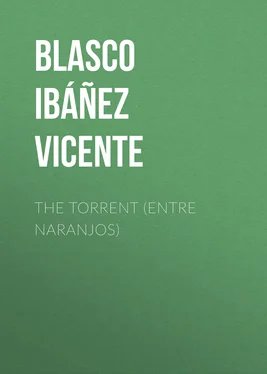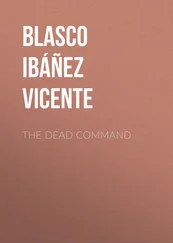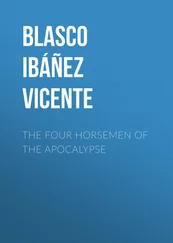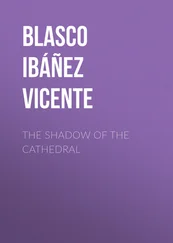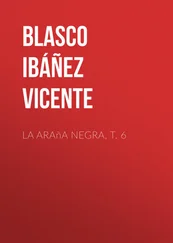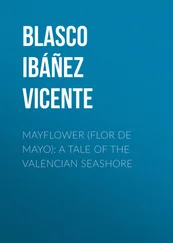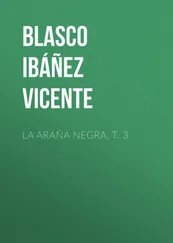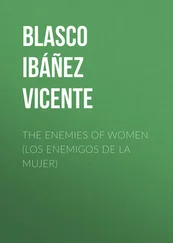Vicente Blasco Ibáñez - The Torrent (Entre Naranjos)
Здесь есть возможность читать онлайн «Vicente Blasco Ibáñez - The Torrent (Entre Naranjos)» — ознакомительный отрывок электронной книги совершенно бесплатно, а после прочтения отрывка купить полную версию. В некоторых случаях можно слушать аудио, скачать через торрент в формате fb2 и присутствует краткое содержание. Жанр: foreign_prose, foreign_antique, на английском языке. Описание произведения, (предисловие) а так же отзывы посетителей доступны на портале библиотеки ЛибКат.
- Название:The Torrent (Entre Naranjos)
- Автор:
- Жанр:
- Год:неизвестен
- ISBN:нет данных
- Рейтинг книги:4 / 5. Голосов: 1
-
Избранное:Добавить в избранное
- Отзывы:
-
Ваша оценка:
- 80
- 1
- 2
- 3
- 4
- 5
The Torrent (Entre Naranjos): краткое содержание, описание и аннотация
Предлагаем к чтению аннотацию, описание, краткое содержание или предисловие (зависит от того, что написал сам автор книги «The Torrent (Entre Naranjos)»). Если вы не нашли необходимую информацию о книге — напишите в комментариях, мы постараемся отыскать её.
The Torrent (Entre Naranjos) — читать онлайн ознакомительный отрывок
Ниже представлен текст книги, разбитый по страницам. Система сохранения места последней прочитанной страницы, позволяет с удобством читать онлайн бесплатно книгу «The Torrent (Entre Naranjos)», без необходимости каждый раз заново искать на чём Вы остановились. Поставьте закладку, и сможете в любой момент перейти на страницу, на которой закончили чтение.
Интервал:
Закладка:
Rafael, from long periods of absence, noted his father's condition better than the rest. The old man was ill, very ill. As tall as ever, as austere and imposing, and as little given to words. But he was growing thinner. His fierce eyes were sinking deeper into their sockets. There was little left to him now except his massive frame. His neck, once as sturdy as a bull's, showed the tendons and the arteries under the loose, wrinkled skin; and his mustache, once so arrogant, but now withering with each successive day, drooped dispiritedly like the banner of a defeated army wet with rain.
The boy was surprised at the gestures and tears of anger with which his mother welcomed expression of his fears.
"Well, I hope he'll die as soon as possible … Lot's of use he is to us!… May the Lord be merciful and take him off right now."
Rafael said nothing, not caring to pry into the conjugal drama that was secretly and silently playing its last act before his eyes.
Don Ramón, that somber libertine of insatiable appetites, prey to a sinister, mysterious inebriation, was tossing in a last whirlwind of tempestuous desire, as though the blaze of sunset had set fire to what remained of his vitality.
With a deliberate, determined lustfulness, he went scouring the District like a wild satyr, and his brutish assaults, his terrorism and abuse of authority, were reported back by scurrilous tongues to the seignorial mansion, where his friend don Andrés was trying in vain to pacify the wife.
"That man!" doña Bernarda would stammer in her rage. "That man is going to ruin us! Doesn't he see he's compromising his son's future?"
His most enthusiastic adherents, without losing their traditional respect for him, would speak smilingly of his "weaknesses"; but at night, when don Ramón, exhausted by his struggle with the insatiable demon gnawing at his spirit, would be snoring painfully away, with a disgusting rattle that made it impossible for people in the house to sleep, doña Bernarda would sit up in her bed with her thin arms folded across her bosom, and pray to herself:
"My Lord, My God! May this man die as soon as possible! May all this come to an end soon, oh Lord!"
And Bernarda's God must have heard her prayer, for her husband got rapidly worse.
"Take care of yourself, don Ramón," his curate friends would say to him. They were the only ones who dared allude to his disorderly life. "You're getting old, and boyish pranks at your age are invitations to Death!"
The cacique would smile, proud, at bottom, that all men should know that such exploits were possible for a man at his age.
He had enough strength left for one more caress the day when, escorted by don Andrés, Rafael entered with his degree as a Doctor of Law. He gave the boy his shotgun—a veritable jewel, the admiration of the entire District—and a magnificent horse. And as if he had been waiting around just to see the realization of old Don Jaime's ambition, which he himself had not been able to fulfill, he passed away.
All the bells of the city tolled mournfully.
The Party weekly came out with a black border a palm wide; and from all over the District folks came in droves to see whether the powerful don Ramón Brull, who had been able to rain upon the just and unjust alike on this earth, could possibly have died the same as any other human being.
III
When doña Bernarda found herself alone, and absolute mistress of her home, she could not conceal her satisfaction.
Now they would see what a woman could do.
She counted on the advice and experience of don Andrés, who was closer than ever to her now; and on the prestige of Rafael, the young lawyer, who bade fair to sustain the reputation of the Brulls.
The power of the family continued unchanged. Don Andrés, who, at the death of his master, had succeeded to the authority of a second father in the Brull house, saw to the maintenance of relations with the authorities at the provincial capital and with the still bigger fish in Madrid. Petitions were heard in the patio the same as ever. Loyal party adherents were received as cordially as before and the same favors were done, nor was there any decline of influence in places that don Andrés referred to as "the spheres of public administration."
There came an election for Parliament, and as usual, doña Bernarda secured the triumph of the individual whose nomination had been dictated from Madrid. Don Ramón had left the party machine in perfect condition; all it needed was enough "grease" to keep it running smoothly; and there his widow was besides, ever alert at the slightest suggestion of a creak in the gearing.
At provincial headquarters they spoke of the District with the usual confidence:
"It's ours. Brull's son is as powerful as the old man himself."
The truth was that Rafael took little interest in "the Party." He looked upon it as one of the family properties, the title to which no one could dispute. He confined his personal activities to obeying his mother. "Go to Riola with don Andrés. Our friends there will be happy to see you." And he would go on the trip, to suffer the torment of an interminable rally, a paella , during which his fellow partisans would bore him with their uncouth merriment and ill-mannered flattery. "You really ought to give your horse a couple of days' rest. Instead of going out for a ride, spend your afternoon at the Club! Our fellows are complaining they never get a sight of you." Whereupon Rafael would give up his rides—his sole pleasure practically—and plunge into a thick smoke-laden atmosphere of noise and shouting, where he would have to answer questions of the most illustrious members of the party. They would sit around, filling their coffee-saucers with cigar-ash, disputing as to which was the better orator, Castelar or Canovas, and, in case of a war between France and Germany, which of the two would win—idle subjects that always provoked disagreements and led to quarrels.
The only time he entered into voluntary relations with "the Party" was when he took his pen in hand and manufactured for the Brull weekly a series of articles on "Law and Morality" and "Liberty and Faith,"—the rehashings of a faithful, industrious plodder at school, prolix commonplaces seasoned with what metaphysical terminology he remembered, and which, from the very reason that nobody understood them, excited the admiration of his fellow partisans. They would blink at the articles and say to don Andrés:
"What a pen, eh? Just let anyone dare to argue with him.... Deep, that noodle, I tell you!"
Nights, when his mother did not oblige him to visit the home of some influential voter who must be kept content, he would spend reading, no longer, however, as in Valencia, books lent him by the canon, but works that he bought himself, following the recommendations of the press, and that his mother respected with the veneration always inspired in her by printed paper sewed and bound, an awe comparable only to the scorn she felt for newspapers, dedicated, every one of them, as she averred, to the purpose of insulting holy things and stirring up the brutal passions of "the rabble."
These years of random reading, unrestrained by the scruples and the fears of a student, gradually and quietly shattered many of Rafael's firm beliefs. They broke the mould in which the friends of his mother had cast his mind and made him dream of a broader life than the one known to those about him. French novels transported him to a Paris that far outshone the Madrid he had known for a moment in his graduate days. Love stories awoke in his youthful imagination an ardor for adventure and involved passions in which there was something of the intense love of indulgence that had been his father's besetting sin. He came to dwell more and more in the fictitious world of his readings, where there were elegant, perfumed, clever women, practicing a certain art in the refinement of their vices.
Читать дальшеИнтервал:
Закладка:
Похожие книги на «The Torrent (Entre Naranjos)»
Представляем Вашему вниманию похожие книги на «The Torrent (Entre Naranjos)» списком для выбора. Мы отобрали схожую по названию и смыслу литературу в надежде предоставить читателям больше вариантов отыскать новые, интересные, ещё непрочитанные произведения.
Обсуждение, отзывы о книге «The Torrent (Entre Naranjos)» и просто собственные мнения читателей. Оставьте ваши комментарии, напишите, что Вы думаете о произведении, его смысле или главных героях. Укажите что конкретно понравилось, а что нет, и почему Вы так считаете.
